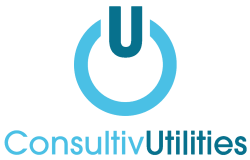What are electricity interconnectors?
Electricity interconnectors are high-voltage cables that carry electricity, connecting electrical grids and systems for neighbouring countries.
The cables themselves are either on land via overhead cables or beneath the sea/underground. The world’s longest subsea electricity interconnector is the North Sea Link cable that runs under the North Sea, stretching 450 miles.
The UK’s electricity interconnectors are operated by the National Grid and regulated by Ofgem.
How do electricity interconnectors work?
Interconnectors enable the transfer of electricity between two countries, directing power to the market where prices are higher. Operators of these interconnectors primarily earn revenue through capacity auctions, with their earnings being driven by the price disparities between the two markets.
Gas interconnectors
The UK also has gas interconnectors which are used to connect gas transmission systems from other countries to the National Transmission System (NTS). There are currently three gas interconnectors that connect to the NTS, which are:
- IUK Interconnector – this connects to Belgium
- Balgzand to Bacton Line (BBL) – this connects to the Netherlands
- Moffat to the Republic of Ireland Interconnector
Why do we have interconnectors?
The purpose of having electricity interconnectors is for countries to be able to share and trade their surplus electricity. For example, should the UK experience less renewable energy production from wind or solar, our electricity systems can source excess energy via an interconnector from a neighbouring country. The idea is that this ultimately reduces the need for further energy generation, and it ensures renewable energy is not wasted.
How does the UK benefit from having interconnectors with Europe?
The UK having electricity and gas interconnectors with Europe brings several benefits, including:
Energy security
Diversified supply: Interconnectors provide access to a broader range of energy sources, reducing dependence on domestic production and enhancing energy security.
Emergency support: In times of supply shortages or emergencies, the UK can import energy from Europe to stabilise the grid and maintain supply.
Economic efficiency
Cost savings: By accessing cheaper energy from Europe during times of high domestic prices, the UK can lower overall energy costs for consumers and businesses.
Market integration: Interconnectors enable the UK to participate in the European energy market, promoting competitive pricing and efficient allocation of resources.
Renewable energy integration
Balancing supply and demand: Interconnectors facilitate the integration of renewable energy by balancing intermittent supply (e.g. wind and solar) with more stable sources from across Europe.
Export opportunities: The UK can export surplus renewable energy during periods of high production, ensuring that excess energy is not wasted and generating revenue.
Environmental benefits
Reduced emissions: Access to cleaner energy sources in Europe, such as hydropower or nuclear. These can help the UK reduce its carbon footprint and meet climate targets.
Enhanced renewable utilisation: By smoothing out fluctuations in renewable energy production, interconnectors support a higher penetration of renewable energy in the grid.
System resilience
Grid stability: Interconnectors enhance the stability and resilience of the electricity grid by providing additional routes for energy flow, thus reducing the risk of blackouts.
Flexibility: They offer greater flexibility in managing the grid, allowing for better handling of peak demand periods and maintenance schedules.
Innovation and investment
Infrastructure development: The establishment and operation of interconnectors drive investment in infrastructure, technology, and innovation, benefiting the broader economy.
Job creation: The development and maintenance of interconnectors create jobs and stimulate economic activity in related sectors.
Political and strategic benefits
Strengthened ties: Energy interconnectors foster closer political and economic ties between the UK and European countries, promoting cooperation and stability.
Geopolitical influence: By being integrated into the European energy network, the UK can have a say in regional energy policies and initiatives.
Overall, electricity and gas interconnectors with Europe provide the UK with significant advantages in terms of:
- Energy security
- Economic benefits
- Environmental sustainability
- System resilience, and
- Geopolitical relations.
How many interconnectors does the UK have and where are they?
The UK’s National Grid operates six interconnectors that link to France, The Netherlands, Belgium, Norway and Denmark.
Here’s a map showing the locations for the UK electricity interconnectors:
The Viking Link Interconnector
The most recent interconnector to go live is the Viking Link Interconnector which went live towards the end of 2023. This newest interconnector enables a two-way exchange of electricity between Lincolnshire, UK and Jutland, Denmark. The link is the world’s longest electricity interconnector, spanning approximately 765km. It is also estimated to have the capacity to provide enough energy to power up to 1.4 million homes.
The environmental impact of electricity interconnectors
As referenced above, electricity interconnectors enable countries to tap into a neighbouring country’s renewable energy supply should they require it. As a result, renewable energy use is optimised by being transmitted to where it is needed most.
The overall impact of this is a reduction in wasted renewable energy, a cleaner energy system that utilises green energy and ultimately contributing to net zero.
How we help your organisation secure its energy contracts
Our team have extensive experience in providing guidance on energy contracts for organisations of all sizes. Our objective is to take the pressure off you and provide a seamless service that will ultimately benefit your organisation.
If you would like to arrange a free consultation with one of our energy specialists to discuss how we can assist you with your energy, please contact us.
We hope you have found this blog both interesting and valuable. Feel free to share your thoughts or questions on this via email at info@consultivutilities.com.
Categories:


